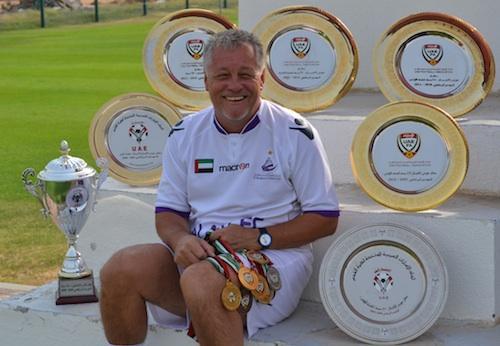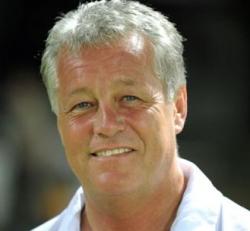Fast Growing Trend In Soccer That Cannot Be Ignored
Wayne Harrison, Co-Founder Soccer Awareness Elite Academy, shares his thoughts on the Power of Positive Reinforcement. A former pro soccer player at Blackpool F.C. in the English Championship league as well as the Academy Director, Harrison was also the Youth Director Al Ain Football Club in the UAE. An author of more than 12 books on soccer coaching, he now coaches youth soccer, writes and presents at coaching symposiums worldwide. Harrison holds a UEFA ‘A’ License and the NSCAA Premier Diploma, as well as a bachelor’s degree in applied physiology and sports psychology. He is the Director of Coaching for Total Futbol Academy.
The game is getting faster, using fewer touches on the ball, which creates the need for quicker thinking and better decision making players. The BIG question is: How Do We Affect This In Our Training? The answer is through intelligent soccer players using technique and skill development. Here is what I mean: Technique is the actual movement; skill is the “when and where” of the movement aligned with correct decision making It is no good having great technique but little skill, or vice versa. Players need to learn to be good at both to succeed. This training teaches both. Three Stages Of Success For An Individual / Team Player
1. Deep Practice: We start without pressure and build it to training under pressure as the players become capable technically.
Deep practice now means training on the edge of your capabilities (the same as training under pressure), and training in this capacity leads to “mistakes” being made as players learn to perform tasks they are not totally comfortable with yet. So making mistakes helps the learning process. Pressure training example: NO SPACE PLUS NO TIME EQUALS MORE ACCURATE AND FASTER DECISIONS. This increases the speed of skill acquisition, becoming 10 times faster than regular practice that simply incorporates technical drills of the same repetition without deep thought. Simply put, mistakes lead to better skill acquisition over time and with practice, and they help the learning process to determine the “where, when, how and why” of decision making. Specific practice within deep practice: 1 v 1: an example would be practicing the same theme over and over, initially as a technique, then as a skill. It could be passing one touch, first in isolation as a technique and second as a skill in this 1 v 1 set up, identifying different options at speed in one touch passing and quick thinking.
2. Ignition: This is the motivational fuel that generates the energy, passion and commitment of a person from within to perform deep practice.
It is intrinsic motivation where the player has a self-willed drive to succeed. This is the catalyst and it represents a huge level of commitment requirement from the player. This is also ignited beyond the self-inspired intrinsic drive by master coaches.
3. Master coaching: These coaches create an active learning environment where the players are actively engaged; and are led by guided discovery methods of coaching.
Children retain only 18% of concepts learned passively, but 68% of concepts learned actively. Training should be player-centered not coach-centered.
A need for positivity: the types and manner of words and actions used by a coach can influence the player greatly. Negative words and actions can have as much bad influence and damage confidence as Positive words and actions have great influence and build confidence. Myelin and its relationship with guided discovery coaching Human skill is created by chains of nerve fibers carrying a tiny electrical impulse from the brain to the body. Myelin: What is it? Myelin is the insulation that wraps around the nerve fibers in our brains and increases signal strength, speed and accuracy and speeds up decision making in your thoughts and movements What makes it grow?
Scientific research proves that Myelin is produced by a person thinking about and analyzing skill situations themselves, and being trained with self thought as a major part of the process.
Making and correcting errors; constantly generating solutions to ongoing problems. The game is dynamic, and situations change every second; new decisions have to be made every second. This occurs in deep practice: the more you practice, the more decision making situations you find yourself in. The more thought it takes to solve them, the more myelin is grown. The faster the body and brain processes these, the better the decisions made.
So, going backwards, the formula is: Master coaching creates Ignition; that encourages Deep Practice, and especially SPECIFIC Practice; that produces Myelin; that produces improvements in accuracy, strength and speed of decision-making.
Soccer Awareness Elite Academy (SAES) is new a soccer development program, helping develop soccer awareness and intelligence in the USA. It is a non-competitive program that works along side of today’s best youth soccer clubs, providing additional training.
This elite academy is focused on developing how a soccer elite player thinks – the MIND of the player – and is based on proven scientific principles of development.






